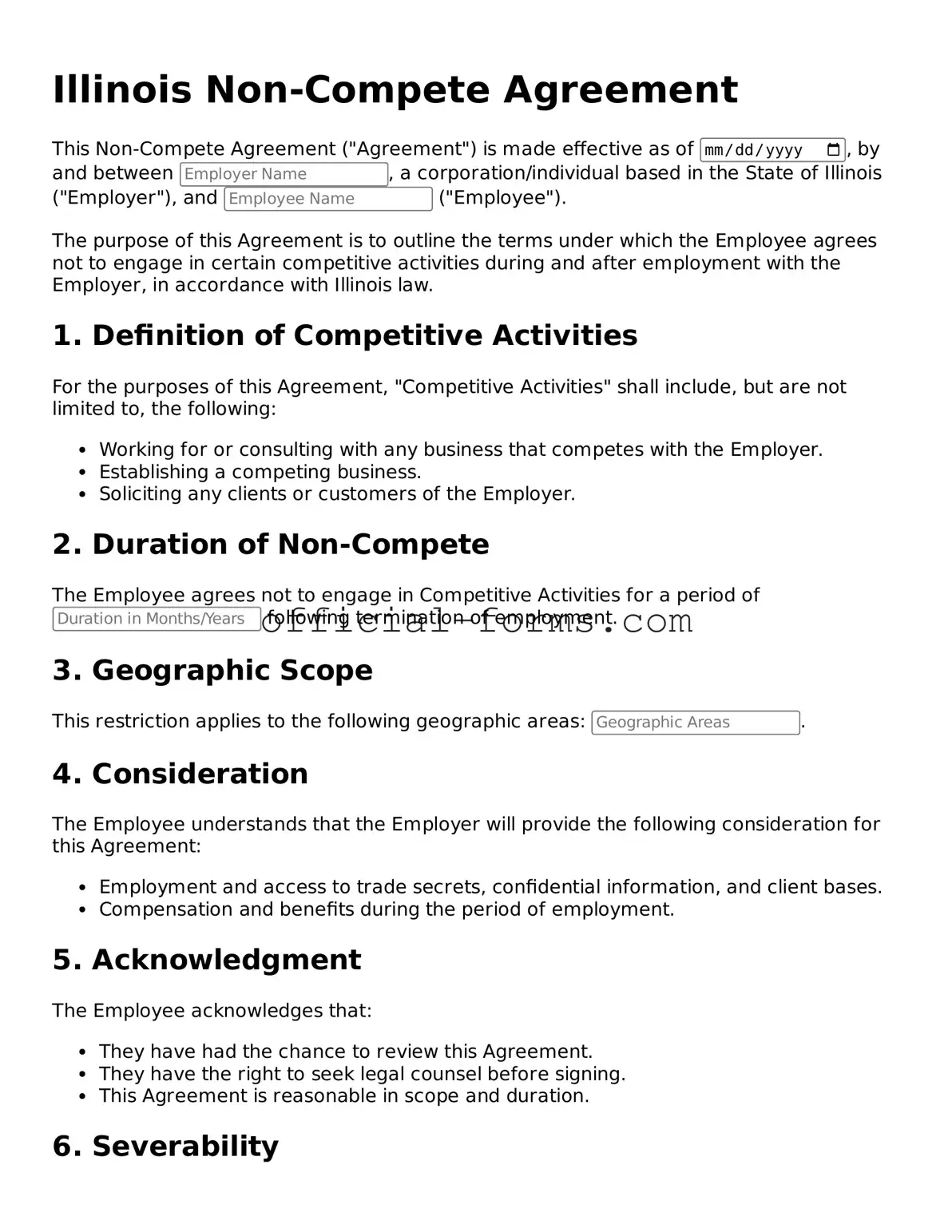When individuals fill out the Illinois Non-compete Agreement form, several common mistakes can lead to complications down the line. Understanding these pitfalls can help ensure that the agreement is completed accurately and effectively. One frequent error is failing to clearly define the scope of the non-compete clause. It is essential to specify the geographical area and the duration of the restriction. Without this clarity, the agreement may be deemed unenforceable.
Another mistake involves neglecting to consider the reasonableness of the restrictions imposed. Courts in Illinois often scrutinize non-compete agreements to ensure they are not overly broad or unjust. If the restrictions are too severe, they may not hold up in court. Therefore, it is important to strike a balance that protects the employer's interests while allowing the employee to pursue their career.
Many individuals also overlook the importance of including consideration in the agreement. Consideration refers to something of value exchanged between the parties. For a non-compete agreement to be valid, the employee must receive something in return, such as a job offer or a promotion. Failing to provide adequate consideration can render the agreement unenforceable.
Additionally, some people mistakenly assume that signing the agreement without reading it thoroughly is acceptable. It is crucial to understand every term and condition before signing. Misinterpretations can lead to unforeseen consequences, and individuals should seek clarification on any confusing aspects.
Another common error is not keeping a copy of the signed agreement. Once the document is signed, it is vital to retain a copy for personal records. This ensures that both parties have access to the same information and can refer back to it if disputes arise in the future.
Moreover, individuals sometimes fail to update the agreement when circumstances change. For instance, if an employee receives a promotion or changes roles within the company, the non-compete terms may need to be revised. Regular reviews can prevent conflicts and misunderstandings.
Some people also neglect to consult with legal counsel before finalizing the agreement. Seeking professional advice can provide valuable insights into the enforceability of the terms and help tailor the agreement to specific needs. This step can save time and resources in the long run.
Another mistake is not considering the potential impact on future employment. Individuals should be aware that signing a non-compete agreement may limit their job opportunities in the future. Understanding the implications of the agreement can help individuals make informed decisions.
Lastly, some individuals may not fully comprehend the consequences of violating the agreement. Breaching a non-compete can lead to legal action, including financial penalties. Being aware of these repercussions is essential for making informed choices regarding employment.
By avoiding these common mistakes, individuals can better navigate the complexities of the Illinois Non-compete Agreement form. Taking the time to understand the agreement and its implications can lead to a more secure and beneficial outcome for all parties involved.

